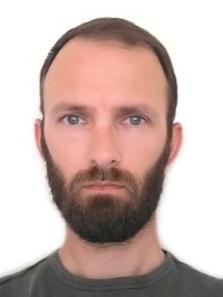Mr James Bragg

Qualifications
- Other: Defence Instructional Techniques Course
Defence Centre of Training Support, 2007 - Other: Instructional Techniques
Defence Centre of Training Support, 2007 - Other: Train the Trainer
Defence Centre of Training Support, 2007
Activities
2019
The main aim is to find out how native English speakers read and understand sentences in English, specifically with respect to the mental state complement-taking verbs think, guess, know and believe. The goal of this project is to explore the question ‘is the presence or absence of the complementizer ‘that’ (i.e. complementizer alternation) a case of grammatical complexity or simplification?
To this end, two self-paced reading tasks using the software package E-Prime were designed whereby participants will read sentences one word at a time, on a computer monitor, and answered comprehension questions about the sentences. The objective of this study is to increase our understanding of how native English speakers understand and process sentences containing complement clauses versus those without in English. An example of this are the sentences ‘He thinks that this dog is going to run away’ versus ‘He thinks this dog is going to run away’ where the latter sentence omits the complementizer or contains the ‘zero form’. In addition to examining complementizer alternation (i.e. that/zero) we will also test for the potential impact that additional constituents in either the matrix clause, complement clause or between the matrix and complement clause have with respect to processing time (see attached doc). Both tasks have been specifically designed to test the literature, and its concomitant claims, on structural aspects and impact on complementizer alternation patterns with respect to outstanding psycholinguistic questions regarding the issue of processing and grammatical complexity or simplification.
22 Aug 2019
Activity: Oral presentation (Speaker)Sentence processing and the that/zero complementizer alternation: Investigating grammatical complexity and predictive processing
21 Aug 2019 – 24 Aug 2019
Activity: Participation in Academic conference (Speaker)
